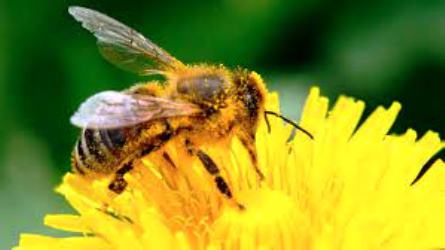By Nefishetu Yakubu
The Federal Ministry of Agriculture and Rural Development (FMARD) on Tuesday, said that bee pollination increases agricultural yield, preserves biodiversity and enhances sustainable livelihoods.
The Permanent Secretary in the ministry, Ernest Umakhihe disclosed this during the training of 65 bee farmers and agriculture officers on integrated crop pollination Practices and use of pollination service equipment in fruits and vegetable farms in Benin.
Represented by Dr Deola lordbanjou, a director in the ministry, Umakhihe said Bees are social insects that play vital roles in improving agricultural productivity per hectare of cash crops by about 30 percent annually.
He said “It also increases oil palm yield by 110 percent, millet by 225 percent, soya beans by 60 percent, citrus by 100 percent, cocoa by 80 percent, pepper by7 123 percent and cucumber by 80 percent, leading to the promotion of honeybee pollination services value chain in the ministry.
“It is one of the most economically important insects in Agricultural economy, rendering pollination services, producing honey and other hive products.
“Global pollination of economic value averaged 153 billion euros, and is worth 9.5 percent of the world’s agricultural production of human food.
“The leading categories of Bee-pollinated crops are fruits and vegetables making around 50 billion euros each followed by edible crops, stimulants, nuts and spices,” he said.
Umakhihe explained that the training followed the need for government to continue the awareness and upgrade of technical knowledge of project support officers.
Earlier, the Director at the Federal Department of Agriculture, Engr. Abubakar Abdullahi said proper pollination could improve the quantity and quality of fruits and vegetables.
According to him, any decline in bee pollination in Africa, as experienced in other regions, will impact negatively on pollination with its economic effects on food security and human welfare.
In his welcome address, the Programme Manager of the state Agricultural Development Project (ADP), Edward Izevbigie, urged participants to take advantage of the training to create wealth for themselves.
He noted that a decline in bee population has ecological consequences in reducing the diversity of wild plants and distorting the wider ecosystem’s stability.


